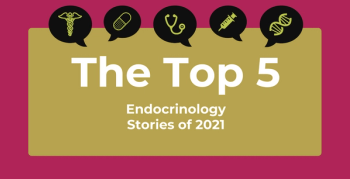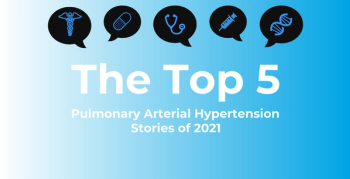
Although cardiovascular disease risk is well established in survivors of breast cancer, how cardiotoxicity from treatment influences development of cardiometabolic risk factors is not.

Maggie is a senior editor for The American Journal of Managed Care® (AJMC®) and produces written, video, and podcast content covering several disease states. She joined AJMC® in 2019, and has been with AJMC®’s parent company, MJH Life Sciences®, since 2014, when she started as a copy editor.
She has a BA in English from Penn State University. You can connect with Maggie on LinkedIn.

Although cardiovascular disease risk is well established in survivors of breast cancer, how cardiotoxicity from treatment influences development of cardiometabolic risk factors is not.

Interim data from a National Cancer Institute Center for Cancer Research study show demonstrated immune reactions in patients with breast cancer following immunotherapy with their own tumor-infiltrating lymphocytes (TIL).

There is a persistent lack of effective treatments for heart failure with preserved ejection fraction (HFpEF), so in this study, investigators examined the impact of an atrial shunt among patients with this disease subtype.

As a social determinant of health, transportation barriers and their impact on health-related quality of life (HRQOL) were investigated among persons living with HIV in the Deep South.

In this new study from China, the link between left ventricular (LV) structural changes and mortality following coronary artery bypass grafting (CABG) was investigated among a patient cohort with heart failure with reduce ejection fraction.

This 9-month investigation looked into the potential for next-generation sequencing (NGS) at the point of care to increase turnaround time for biomarker testing results in advanced colorectal cancer (CRC).

This new analysis among patients with stage I to III breast cancer investigated outcomes in connection with 5 care delivery variables: stage I at diagnosis, chemotherapy receipt, radiation therapy receipt, endocrine therapy initiation, and endocrine therapy continuation.

This new study of data from Kaiser Permanente Southern California compared outcomes for behavioral health referrals among patients with breast cancer between those receiving a tailored intervention or an education-only approach.

Men who have sex with men (MSM), in particular those paying for sex, need to be a priority population for targeted HIV prevention efforts in sub-Saharan Africa.

The US Preventive Services Task Force (USPSTF) had announced an update to its 2018 recommendation on screening for atrial fibrillation (AFib) for older adults.

In this poster presented at the 2022 ASCO Gastrointestinal Cancers Symposium, minimal residual disease (MRD) status as detected by postsurgery plasma cell-free DNA continued its strong track record of being a reliable predictor of disease progression in colorectal cancer (CRC).

David R. Stukus, MD, FACAAI, of Nationwide Children's Hospital and The Ohio State University College of Medicine, and a board member of the American College of Allergy, Asthma & Immunology, discusses guidelines for eosinophilic esophagitis, as well as some disease patterns that may occur.

In this recent CDC report, data show decreases in new HIV diagnoses in Lesotho, in Africa, among adolescent girls and young women attending antenatal care.

Given the heterogeneous nature of breast cancer, biomarkers evaluated throughout treatment help provide a clearer picture of the treatment paradigm.

These new study findings support a link between faster walking pace and reduced risk of developing heart failure and its subtypes.

This new short-term matched study from investigators at Children’s Hospital of Philadelphia investigated cardiac-related outcomes among pediatric patients presenting with COVID-19–related multisystem inflammatory syndrome.

A recent report from the CDC details varying incidences of breast cancer among women by demographic characteristics and suggests areas for improvement in treatment and patient education on risk.

The combined effects of obesity and malnutrition among individuals with heart failure were explored in this recent study from France, with the investigators noting that while malnutrition is a risk factor for adverse outcomes, obesity often confers a protective effect.

In this review, comparable positive outcomes were seen among persons living with HIV vs not living with HIV who underwent kidney or liver transplant.

A new review explored using partial tandem duplication levels from the MLL gene to monitor for minimal residual disease (MRD) status to predict disease relapse following allogeneic hematopoietic stem cell transplant.

Following a review of trials that evaluated reduced sodium intake among patients with heart failure, investigators found no improvement to patient quality of life or their risks of mortality and hospital readmission.

David R. Stukus, MD, FACAAI, of Nationwide Children's Hospital and The Ohio State University College of Medicine, and a board member of the American College of Allergy, Asthma & Immunology, talks about the increase of eosinophilic esophagitis, or EoE, along with other allergic conditions.

This new study from India investigated outcomes as they pertained to preterm birth, low birth weight, and infant growth measures up to 1 year post delivery.

Survival rates for patients with blast-phase chronic myeloid leukemia (BP-CML) are notoriously poor, necessitating effective treatments to fill the care gap for this group who often survive less than 1 year.

With a top treatment recommendation for obese women with polycystic ovary syndrome (PCOS) comprising lifestyle changes via diet changes and physical activity, this study’s investigators evaluated the effects of a ketogenic diet among this patient population.

The Fraser guidelines can indicate if a child is fully competent to make their own decisions, including consenting to HIV tests if they may be at risk, explained Amanda Ely, CEO of the Children’s HIV Association (CHIVA) of the United Kingdom and Ireland.

Data from the GLOW study of minimal residual disease evaluation following chemotherapy for chronic lymphocytic leukemia (CLL) show the kinase inhibitor/B-cell lymphoma-2 inhibitor pair produced superior outcomes compared with the alkylating agent/monoclonal antibody combination.

Adriaan Voors, MD, professor of cardiology and director of the Heart Failure Clinic, University Medical Center Groningen, the Netherlands, explains why patients provided sodium-glucose co-transporter 2 (SGLT2) inhibitors in hospitals may be unable to continue the medication after discharge.

This year’s most-read articles on endocrinology posted at AJMC.com were concentrated in 3 areas: hormone therapy, treatment for growth hormone deficiency among pediatric patients, and outcomes among women with polycystic ovary syndrome.

This year’s most-read articles on pulmonary arterial hypertension (PAH) covered a range of topics, including nutrition, therapy switches, and patient education to improve treatment adherence. Improving patient outcomes is something they all had in common.

259 Prospect Plains Rd, Bldg H
Cranbury, NJ 08512
© 2025 MJH Life Sciences®
All rights reserved.
